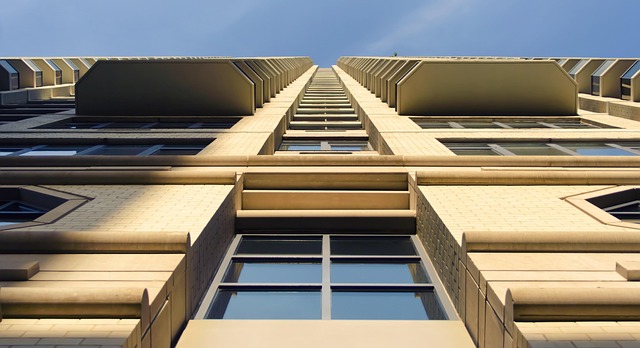Gas water heaters face corrosion and scale buildup in moist environments, impacting performance and lifespan. Stainless steel, with its superior resistance to both, is a top choice for residential systems. Regular maintenance, including flushing and vent cleaning, prolongs lifespan. Chemical additives prevent or dissolve mineral deposits. Advanced technologies like protective coatings and tankless systems enhance efficiency and durability.
A gas water heater is a household essential, but it faces relentless corrosion and scale buildup over time. These issues can not only reduce efficiency but also pose safety hazards. This article delves into the intricate world of stainless-steel gas water heaters, exploring how they resist corrosion and scale formation through superior material science and advanced technologies. We dissect effective maintenance practices and innovative solutions like chemical additives to ensure optimal performance and longevity for these essential appliances.
- Understanding Corrosion and Scale Formation in Gas Water Heaters
- Stainless Steel: The Resistant Material for Hot Water Storage
- Effective Maintenance Practices to Prevent Corrosion
- Chemical Additives: A Potential Solution for Scaling Prevention
- Advanced Technologies for Long-Lasting Corrosion Resistance
Understanding Corrosion and Scale Formation in Gas Water Heaters
Corrosion and scale buildup in gas water heaters are common issues that can significantly impact their performance and lifespan. Gas water heating involves continuously exposing metal surfaces to high-temperature moisture, creating an environment conducive to corrosion. Over time, this can lead to the formation of rust and mineral deposits, particularly in tank water heaters and gas fired heaters. The process starts with the reaction of moisture with carbon steel, resulting in the oxidation of iron, which is a key component in stainless steel. This eventually contributes to the degradation of the metal’s structure, causing leaks and reduced efficiency.
Scale, primarily composed of minerals like calcium and magnesium, forms when hard water is heated. The heat energizes the water molecules, leading them to dissolve more mineral content from the water source. As the water evaporates in a gas water heater, these minerals accumulate on internal surfaces, forming a protective layer that insulates but also restricts water flow. In residential water heating systems, including tankless gas systems and propane water heaters, scale buildup can clog nozzles and limit gas flow, thereby affecting the overall efficiency of hot water systems. Regular maintenance and the use of corrosion-inhibiting treatments are essential to mitigate these issues in energy efficient heating applications.
Stainless Steel: The Resistant Material for Hot Water Storage

Stainless steel has established itself as a prominent material in the world of gas water heating due to its exceptional resistance to corrosion and scale buildup. This durable metal is particularly well-suited for hot water storage tanks, offering a reliable and long-lasting solution for residential water heating applications. When it comes to tank water heaters, natural gas heaters, or propane water heaters, stainless steel tankless gas systems stand out for their superior performance.
The benefits of using stainless steel in gas fired heaters extend beyond just corrosion resistance. It also provides excellent heat retention properties, ensuring efficient energy distribution throughout the hot water system. This feature contributes to energy-efficient heating, making it a smart choice for those looking to reduce their carbon footprint while maintaining consistent hot water supply. Whether you opt for tank or tankless gas systems, stainless steel guarantees a robust and low-maintenance hot water solution for your home.
Effective Maintenance Practices to Prevent Corrosion

Effective Maintenance Practices to Prevent Corrosion in Gas Water Heaters
Regular maintenance plays a pivotal role in prolonging the lifespan and optimal performance of your gas water heater. One of the primary concerns for homeowners is corrosion and scale buildup, which can significantly impact efficiency and safety. Implementing preventive measures early on is key. Start by flushing the system periodically to remove mineral deposits and sediment that may have accumulated over time. This simple step, often recommended by professionals, helps in maintaining water quality and ensuring consistent hot water supply. Additionally, inspecting and cleaning the vents, burners, and heat exchangers regularly can prevent obstructions and ensure efficient gas combustion.
For residential water heating systems, especially tankless gas models, it’s crucial to follow manufacturer guidelines for maintenance intervals. These systems, known for their energy efficiency in both natural gas heaters and propane water heaters, require specific care. Regular checks for leaks, proper ventilation, and timely replacement of filters are essential practices. By adopting these effective maintenance practices, homeowners can ensure their gas water heaters operate smoothly, safely, and efficiently, providing hot water systems that meet their daily needs without concern.
Chemical Additives: A Potential Solution for Scaling Prevention
Gas water heaters are often subject to scaling and corrosion, which can reduce their efficiency and lifespan. One potential solution to mitigate these issues is the use of chemical additives. These substances are designed to prevent or dissolve mineral deposits, commonly known as scale, that accumulate inside the heater’s tank or heat exchanger. By introducing these chemicals into the water supply, homeowners can effectively hinder the formation of scale, ensuring smoother operation and extending the lifespan of their gas water heaters.
Chemical additives offer a practical approach to managing scaling in various types of hot water systems, including natural gas heaters, propane water heaters, tankless gas systems, and residential tank water heaters. With proper maintenance and the use of these preventative measures, energy-efficient heating can be achieved while minimizing the buildup of mineral deposits, thereby enhancing the overall performance and reliability of gas fired heaters in homes.
Advanced Technologies for Long-Lasting Corrosion Resistance

Advanced technologies have significantly enhanced the corrosion resistance and longevity of stainless-steel gas water heaters. One notable innovation is the integration of special coatings and materials that create a protective barrier against aggressive water chemicals, ensuring long-lasting performance even in harsh conditions. These cutting-edge solutions are particularly beneficial for both residential and commercial gas water heating applications.
Additionally, tankless gas systems, also known as on-demand hot water heaters, offer superior energy efficiency compared to traditional tank water heaters. By only heating water when needed, these systems reduce the risk of scale buildup and corrosion, further extending the lifespan of the appliance. This technology is especially popular in areas where space is limited or energy conservation is a priority, providing both natural gas heaters and propane water heaters with enhanced durability and performance.
Stainless steel has established itself as an exceptional material for gas water heaters, offering superior corrosion and scale resistance. By understanding the mechanisms behind these issues, implementing regular maintenance practices, and exploring innovative solutions like chemical additives and advanced technologies, homeowners can extend the lifespan of their hot water systems. These strategies ensure a reliable and efficient gas water heater, providing high-quality hot water for years to come.
